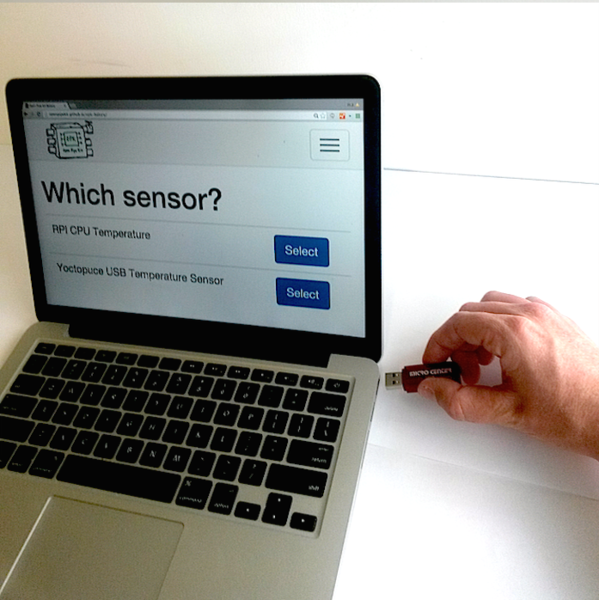
Open Pipe Kit
What is a Pipe?
A Pipe is a small device that connects to a sensor and sends data to a location of a user's choosing. Pipes can be built by nontechnical people from readily accessible parts such as the $35 Raspberry Pi computer and a $15 WiFi USB dongle. A Pipe is configured using an easy to use Graphical User Interface that is accessed over WiFi using a smartphone, laptop, or desktop computer.
The Open Pipe Kit Mission
Our mission is to develop an easy to assemble kit for building Pipes that ...
Empower non-programmers to collect data from a large selection of sensors. Other systems require programming to set up data collection.
Fight vendor lock-in by giving users the freedom to choose where their data flows. Other proprietary turn-key systems lock users' data and sell the data back to them.
Spur innovation by giving programmers the freedom to write additional sensor and database drivers. Other systems require users to buy and use their own proprietary sensors and databases.
The Internet has often been compared to a system of pipes. Imagine that these pipes carry water: for someone interested in collecting water from a local river in order to store it for later use, then, to date, nearly all the "Internet of Things" sensor data solutions are like companies that sell customers proprietary pipes and fittings designed to transport the user's water (sensor data) to a remote, hidden reservoir (a cloud-based server); and typically the user is then required to pay a fee in order to access this now-remote resource.
We believe it is vital for people in the fields of sensor journalism, environmental monitoring, and agriculture to have full control over the data they collect, and to be able to use reliable, easily-acquired, open source hardware and software that can be modified and repurposed without permission.
The Open Pipe Kit is a system designed to meet this need, based on a Raspberry Pi and Node.js. Users of OPK will be able to collect data from sensors and store it either locally (on microSD) or remotely on a server of their own choosing.
The Open Pipe Kit users
We are designing this project to be useful for the following groups: Journalists using sensors in their work. Increasingly, professional and citizen journalists are considering the use of low-cost sensor technology in order to investigate environmental concerns. Useful material in support of the urgent need for open infrastructure for sensor journalism projects can be found here: http://science.creativecommons.org/hardware/workshop/ and here: http://towcenter.org/sensors-and-journalism-sensor-journalism-through-open-and-closed-source-initiatives/
Civic Hackers. Many projects now seek to collect sensor data in order to monitor, critique, and improve local infrastructure, especially in urban areas.
Environmental research. Sensors are now being used by many people in the fields of environmental justice and academic research. The Public Lab community is planning to deploy water and air monitors widely in areas where more data collection is urgently needed.
Agriculture and land management. Small- and medium-scale agriculture is now beginning to see the deployment of sensors intended to improve crop yield and optimize soil treament.
In all of the above cases, there is a strong and growing need for a secure, simple, open, accessible, and reliable data collection infrastructure. This is what we intend the OPK to provide to these groups.
The goal for our first prototype
- Get the underlying OPK Engine framework nailed down
- Build the User Interface for configuring Sensor and Data Reservoir Drivers that then configures the underlying OPK Engine.
- Build half a dozen Sensor drivers for sensors from the pluggable sensor platform known as Grove. We'll use the GrovePi shield to make the sensors pluggable on Raspberry Pi. This will make that sensor platform plug & play!
- Grove Dust sensor driver
- Grove Moisture sensor driver
- Grove Loudness sensor driver
- Grove Temperature and Humidity sensor driver
- Grove Air Quality sensor driver
- Don's Water Depth sensor driver
- Build Data Reservoir Drivers that allow users to configure wether they want to store data locally or remotely, and if remotely, on which server.
- CSV data reservoir driver, for local data storage
- Dat data reservoir driver, for local and/or remote data storage
- Apitronics Hive database reservoir driver, for local and/or remote data storage